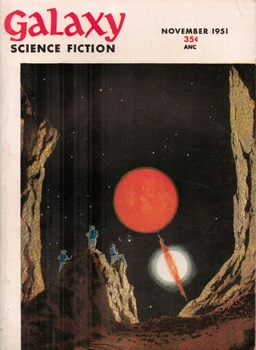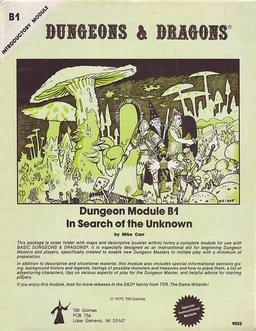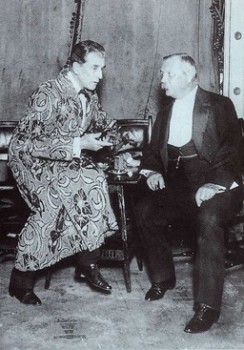Galaxy Science Fiction, November 1951: A Retro-Review
 Galaxy s November, 1951 issue began (as it usually does) with a foreword from the editor, Horace Gold. Gold addresses the purpose of science fiction, stating:
Galaxy s November, 1951 issue began (as it usually does) with a foreword from the editor, Horace Gold. Gold addresses the purpose of science fiction, stating:
What science fiction must present entertainingly is speculation. Not prophecy, but fictional surmises based on present factors… When a story hits a future development on the head, it should be considered a minor accident; its main job was not to predict but to conjecture what might happen if certain circumstances followed certain lines of development.
Regarding the basic plotlines around science fiction, such as interplanetary flight, time travel, and the like, he writes: “Will these worlds ever exist? They may or may not; it doesn’t matter. The possibility is what counts in science fiction, not the certainty.” He concludes that writers “are examining prospects, pleasant and unpleasant alike, and that, if it produces good stories, is the legitimate province of science fiction.”
“Sea Legs” by Frank Quattrocchi — Robert Craig leaves a life of deep space service to live on Earth. But Robert has never known that world; in fact, he has never known constant gravity. He finds there are many more regulations on Earth than in space and that loyalty to the government is of utmost concern. Soon, Robert ends up breaking rules he never knew existed and he flees into radioactive territory to try to escape incarceration.
It took me some time to get into this story, but by the point Robert is on the run, I was finally rooting for him. I think there was enough setup for this to be the opening chapters of a novel, so it seemed like too much to me.





 A little while ago,
A little while ago, 

